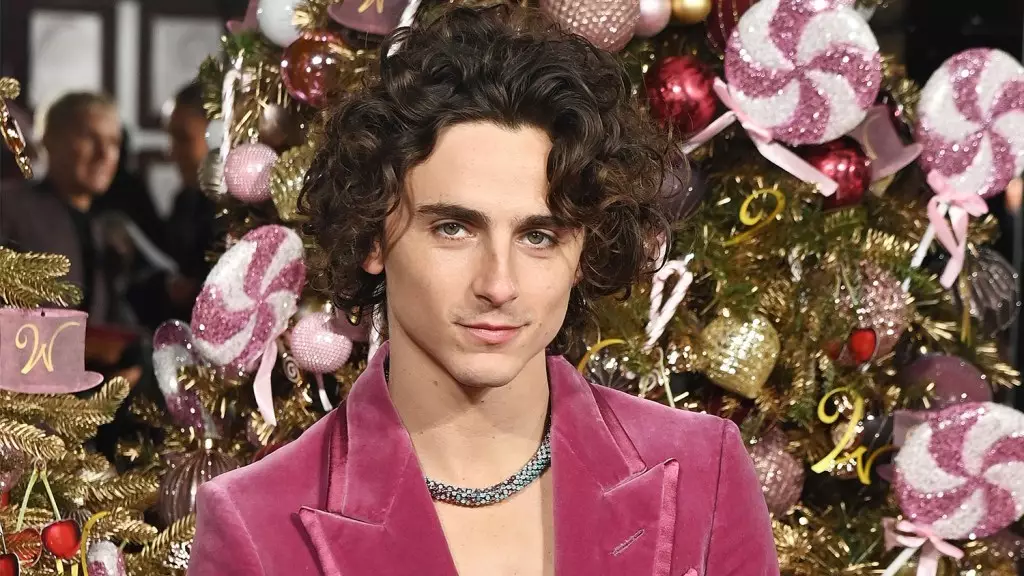In a recent interview with Zane Lowe, Timothée Chalamet opened up about the challenges he faced early in his acting career, particularly regarding the limitations placed on him due to his looks. This revelation starkly highlights a persistent problem in the entertainment industry—typecasting. Chalamet, who is now a well-recognized figure in Hollywood, discussed how the initial closed doors, based primarily on physical appearance, influenced his journey. It raises an essential question about diversity in casting and the criteria used by the industry to gauge suitability for roles.
Chalamet reminisces about how, during his ascent, he was often considered inadequate for mainstream action roles, specifically citing franchises like *The Maze Runner* or *Divergent*. These comments resonate with many actors who have been similarly rejected for roles despite their talent. The actor reported receiving feedback implying that he needed to alter his physique to fit an ideal often dictated by market demands rather than individual talent. This not only illustrates the superficial metrics used in character selection but also shines a light on the often damaging pressure on actors to conform to a certain image.
Finding an Authentic Path
Despite these hurdles, Chalamet managed to devise a unique career path, finding solace and success in independent cinema. His appearances in critically acclaimed films such as *Beautiful Boy*, *Lady Bird*, and *Little Women* have allowed him to explore a broader range of emotions and characters. Chalamet emphasized this evolution, stating that he found his “rhythm” in smaller, more personal movies. It’s compelling to see how he used these opportunities to showcase his versatility and depth as an actor, offering a stark counterbalance to the mainstream formulas he initially encountered.
This shift to indie films also raises an important discussion about the value of artistic integrity versus commercial viability in Hollywood. Chalamet’s insistence on working in films that prioritize narrative and emotional connection speaks to a broader desire for authenticity in storytelling, contrasting sharply with the often formulaic nature of blockbuster productions. As he articulated, both Dylan’s and his own experiences represent a journey of self-discovery and resilience against prevailing industry norms.
Chalamet’s shift from indie darling to a household name is no small feat. With roles in high-profile films like Denis Villeneuve’s *Dune* and the upcoming *Wonka*, he has embraced a massive change in his career trajectory. His ability to draw audiences to the box office is evident, having reportedly generated a staggering $2.5 billion in personal revenue globally. This newfound success is not merely a product of box office numbers; it signifies a growing acceptance of diverse actors in leading roles.
Interestingly, Chalamet’s journey resonates with the themes present in his latest film, *A Complete Unknown*, where he depicts Bob Dylan. The film chronicles Dylan’s tumultuous rise from obscurity to international fame during a period of great sociocultural transformation. This parallel between his life and Dylan’s is not just a marketing hook; it acts as a reminder of how both dealt with societal expectations while striving to be their authentic selves amidst the noise.
With the upcoming release of *A Complete Unknown*, in which he also stars alongside Elle Fanning, audiences are eager to see how he interprets the complexities of the iconic musician. The film is set against the backdrop of a vibrant music scene in the 1960s, reflecting both personal and societal upheavals that resonate well beyond that era. It’s evident that the narrative won’t just explore Dylan as a performer but will likely touch upon themes of identity, ambition, and the relentless pursuit of one’s passions.
Chalamet’s journey serves as a beacon for aspiring actors, suggesting that acceptance and truth can prevail over industry constraints. By sharing his experiences, he does not merely recount his path to success; he advocates for a more inclusive Hollywood landscape where every talent, regardless of appearance, can find their place. As he continues to expand his filmography and influence, Timothée Chalamet not only redefines his career but also contributes to a necessary conversation about the future of casting and representation in the arts.

